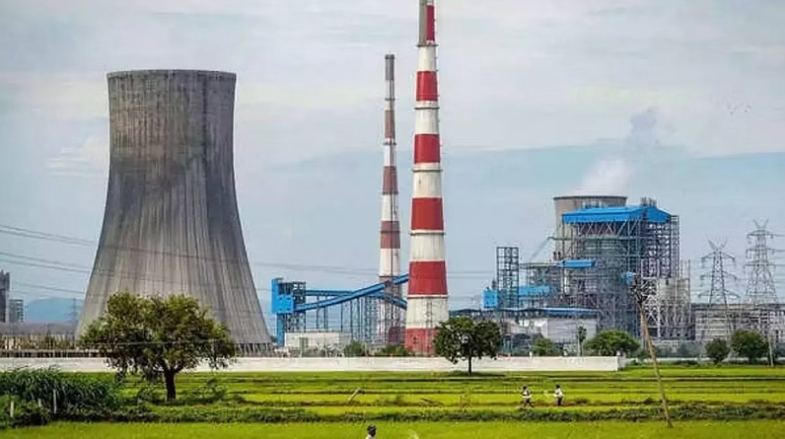
Scheduled from 30 November to 12 December in the United Arab Emirates, the COP28 to the UN Framework Convention on Climate Change (UNFCCC) is particularly important. It marks the conclusion of the first global stocktake, a five-year assessment of progress made toward Paris Agreement goals. Apart from the usual business, nuclear energy will be a central talking point during the summit. The US is reportedly set to lead the effort to advocate for significantly increasing nuclear power globally, with the aim of least tripling worldwide capacity by 2050.
The proposed declaration will urge the World Bank and other international financial institutions to include nuclear energy in their lending policies. So far, the World Bank has followed a policy of not financing nuclear energy projects. Countries like the UK, France, Sweden, Finland, Poland, Ghana, Morocco, and South Korea reportedly support this declaration, and other countries may join as the summit nears.
Given India’s ambitious targets to expand its nuclear capacity, it should partner with the US in these efforts. India should also sign this declaration to have a voice and advocate for its interests.
Resurgence of nuclear power
Nuclear power has been enjoying a renaissance lately, with several countries looking to build new reactors, relax financing rules for atomic energy, and invest in advanced reactor technologies such as Small Modular Reactors (SMRs).
For example, the EU Parliament voted this month to include 17 technologies—including nuclear energy—in the EU’s Net-Zero Industry Act, while Sweden announced its goal to significantly expand its nuclear power capacity by 2045. Canada, too, updated its guidelines earlier this year to allow atomic energy projects to become eligible for investments through green bonds. Countries that had been planning to phase out nuclear power, including South Korea, Germany and Japan, are now reconsidering. And over 60 nuclear reactors are now under construction in 15 countries.
India has ambitious plans for nuclear energy, too.
Currently, 22 nuclear reactors are operational, collectively producing around 6780 MW of power. India expects to commission 20 new nuclear reactors at various construction stages to increase installed capacity to 22,480 MW by 2031. Among these 20 are the five indigenously designed and constructed Indian Pressurised Heavy Water Reactors (IPHWRs) with 700 MWe capacity.
The first reactor of this type became operational in Gujarat earlier this year, and the government has already approved the construction of another ten such reactors in a fleet mode over the next decade. It seems evident that the IPHWR-700 reactor will likely become the mainstay of the Indian nuclear power programme over the next decade.
As more reactors are built, the standardisation process of new indigenous reactors will accelerate, leading to lower costs due to economies of scale. It will also open future export markets for the indigenously developed IPHWR-700 reactors. For customers requiring smaller capacity reactors, India can export 220 and 540 MWe variants of IPHWRs. However, India must start preparing now to seize this opportunity.
A need to expand nuclear financing in India
A significant share of funding for nuclear power projects comes from the government through annual budgetary allocations. If financing from multilateral lending institutions becomes available, it will reduce dependence on budgetary allocations for nuclear plant construction.
Furthermore, greater availability of capital, wider adoption of nuclear power, and reduced scepticism about its viability will further reduce costs by increasing economies of scale and reducing risk premiums.
The US, France, Canada, South Korea, and Russia dominate the global export market for nuclear reactors. To effectively compete in this market, India must actively engage in discussions on emerging regulatory frameworks for international financing of nuclear projects. It must ensure that these regulations don’t inadvertently affect its chances to export its indigenous IPHWRs in the future.
The state-owned Nuclear Power Corporation of India Limited (NPCIL) currently dominates the nuclear power sector in the country and is responsible for the design, construction, commissioning, and operation of nuclear power plants. Although the government has now allowed NPCIL to form joint ventures with other public sector undertakings (PSUs) to build nuclear power plants, it should also extend the same opportunity to private players.
Indian companies already act as subcontractors for various aspects of nuclear plant construction, such as civil works and mechanical, electrical, and instrumentation and control (I&C) system equipment and components. The time is ripe to take the next step and facilitate the comprehensive entry of the Indian private sector into nuclear power plant construction. This will allow private companies to gain more experience and become globally competitive.
India is indigenously developing advanced reactor technologies such as Small Modular Reactors (SMRs) and has declared its intent to cooperate with partners such as the United States and France. The availability of additional capital for research and development projects for such frontier technologies would be a shot in the arm of these efforts.
Nuclear energy offers the efficiency and reliability of thermal power without producing carbon emissions. As India’s energy consumption soars, nuclear power can help meet demand. To achieve its net-zero emissions goal, ensure energy security, and support economic growth, India must increase the role of nuclear power in its energy mix. COP28 would be an excellent opportunity to highlight this.